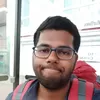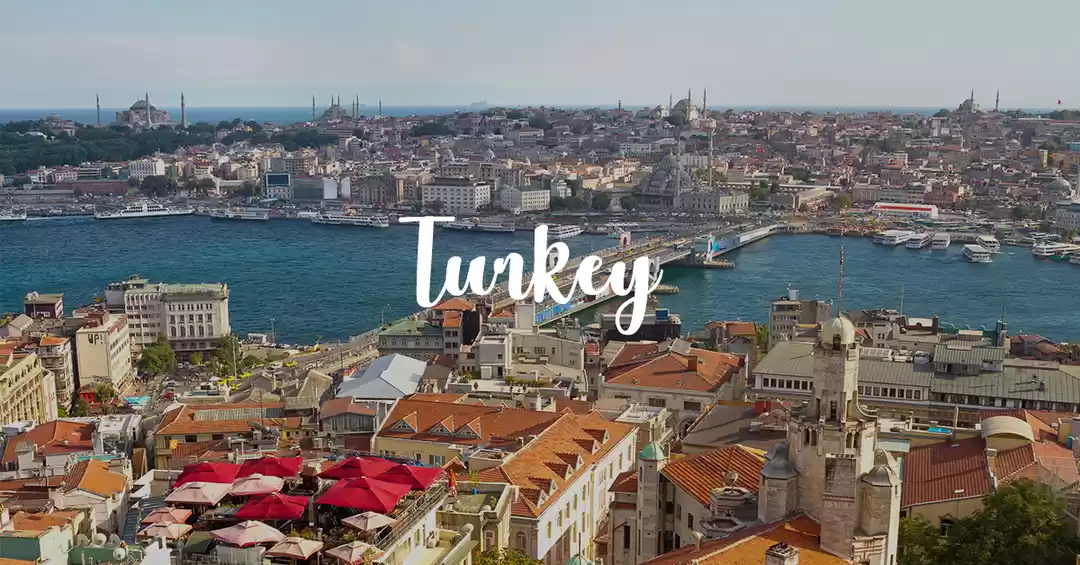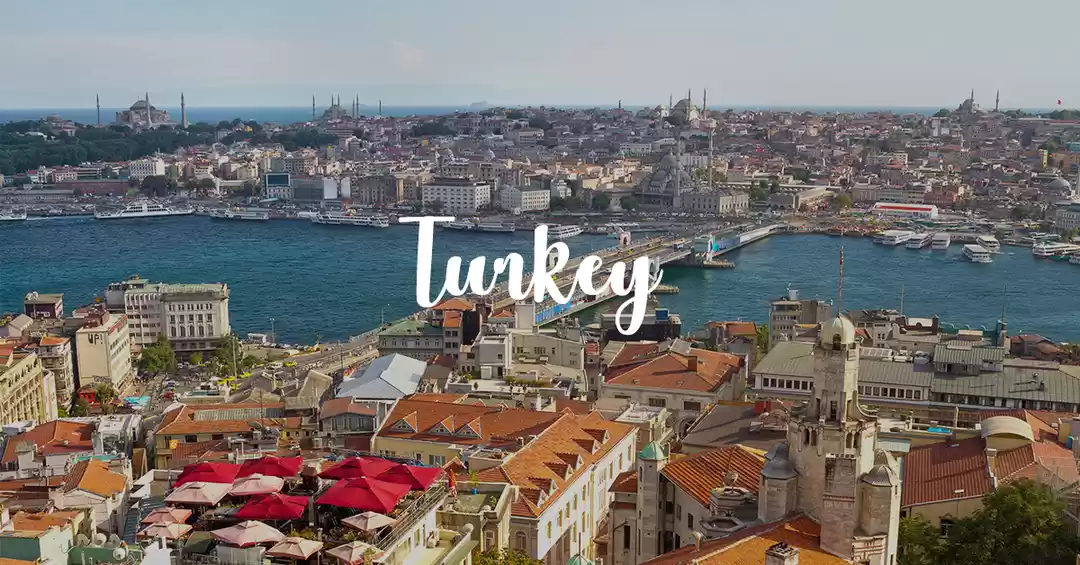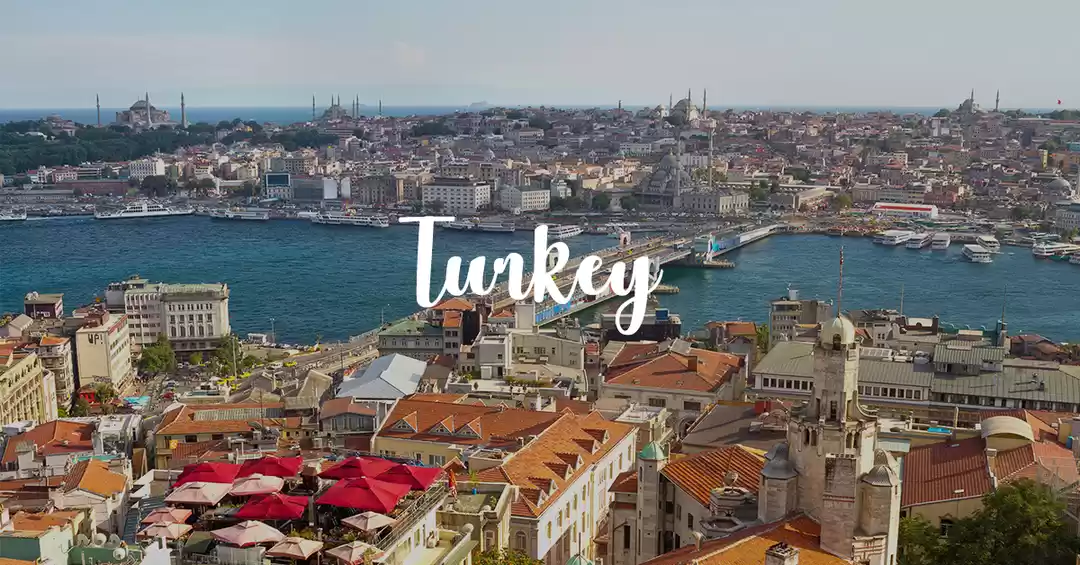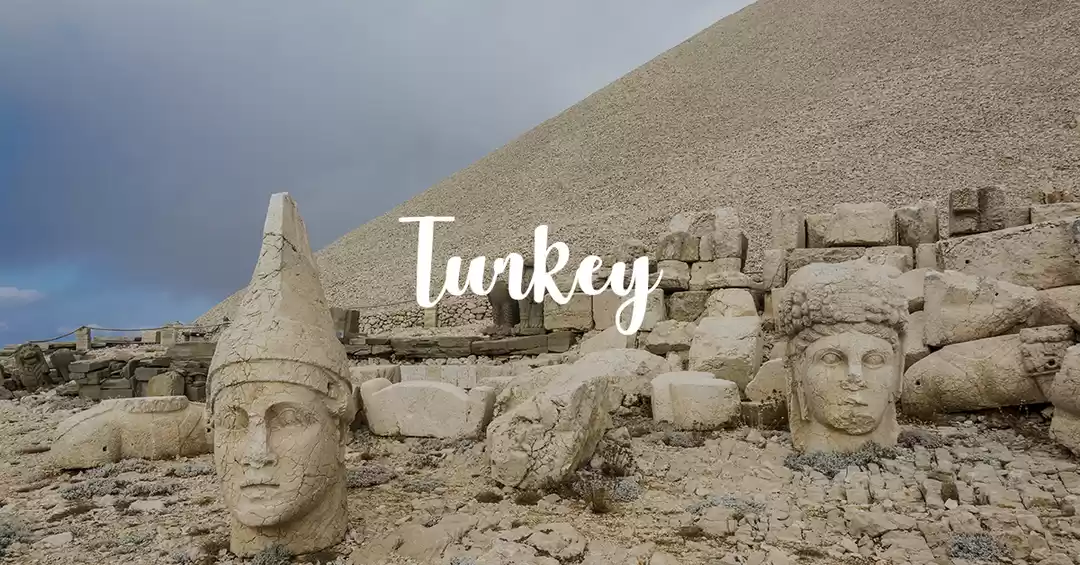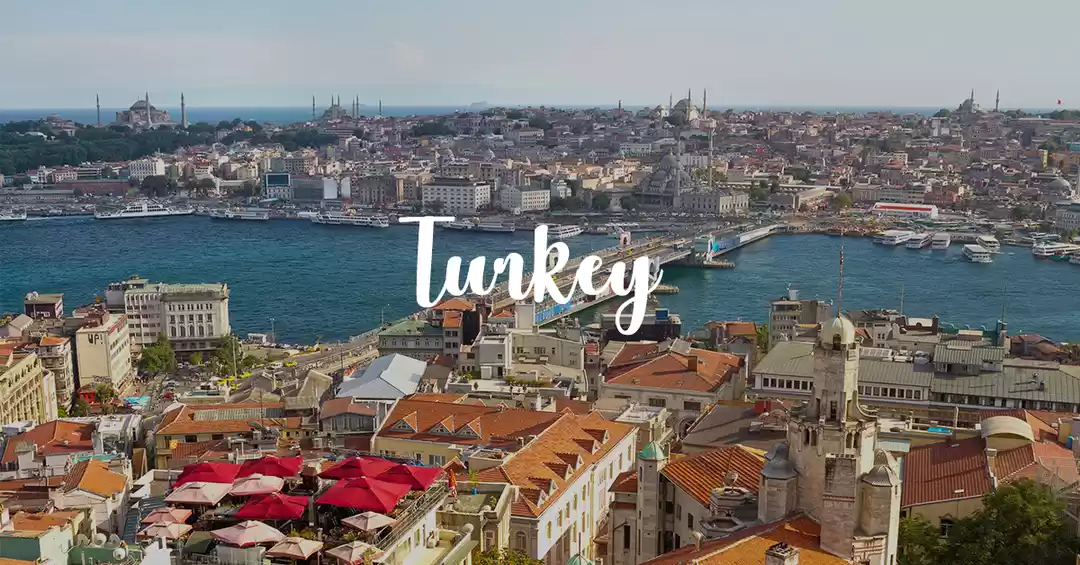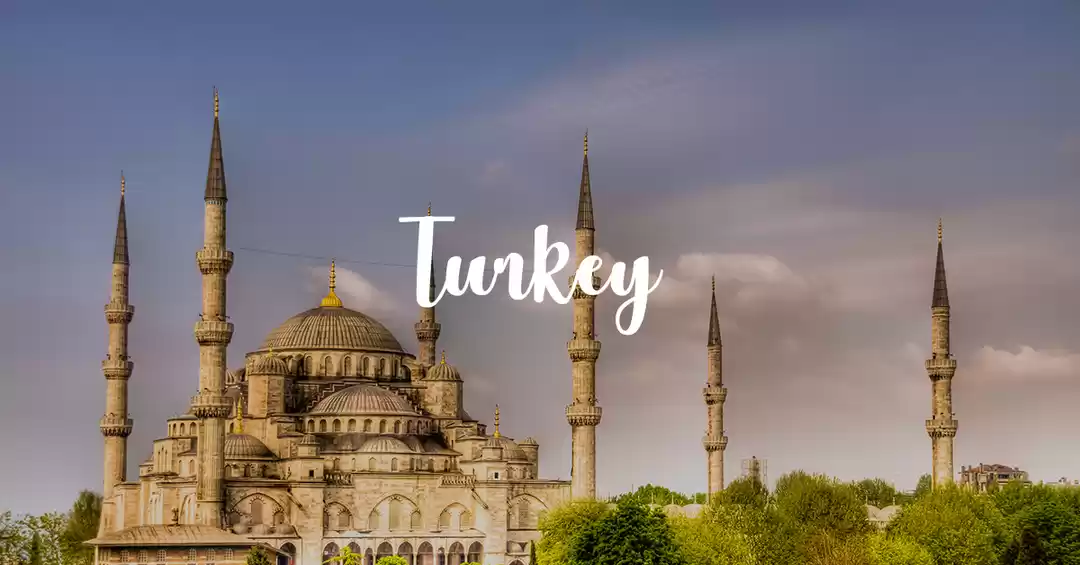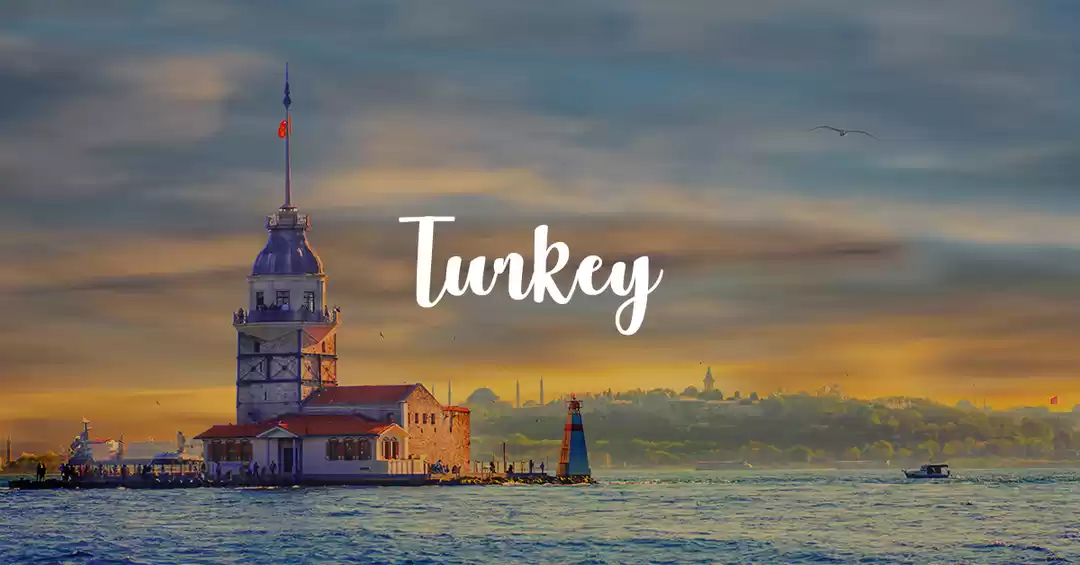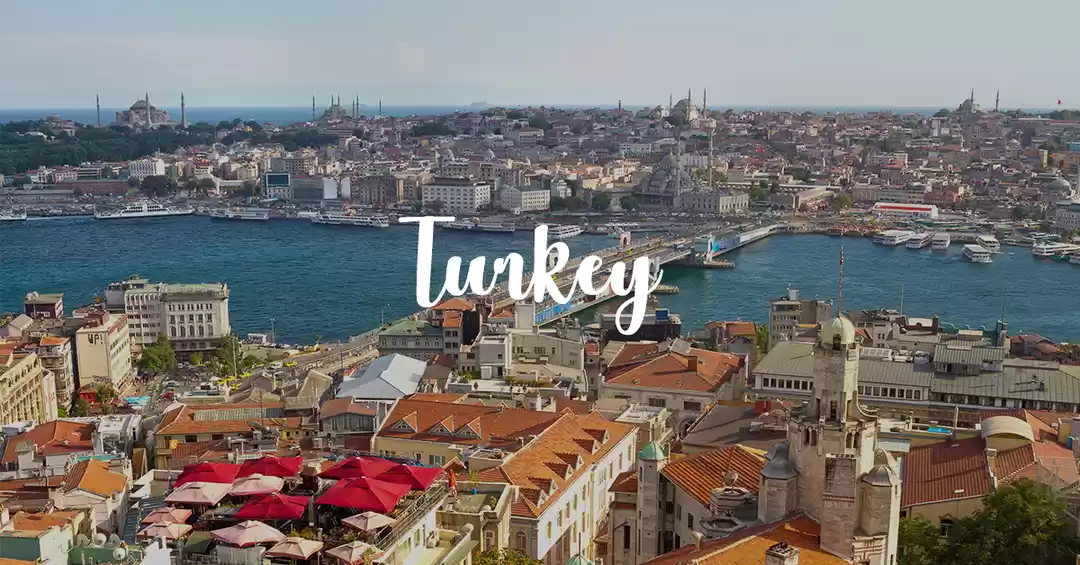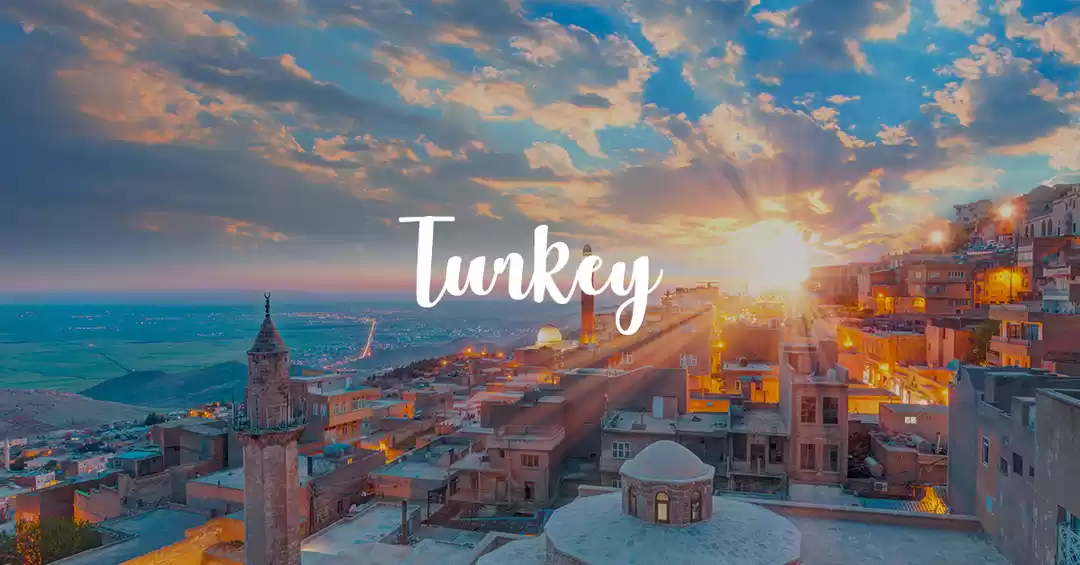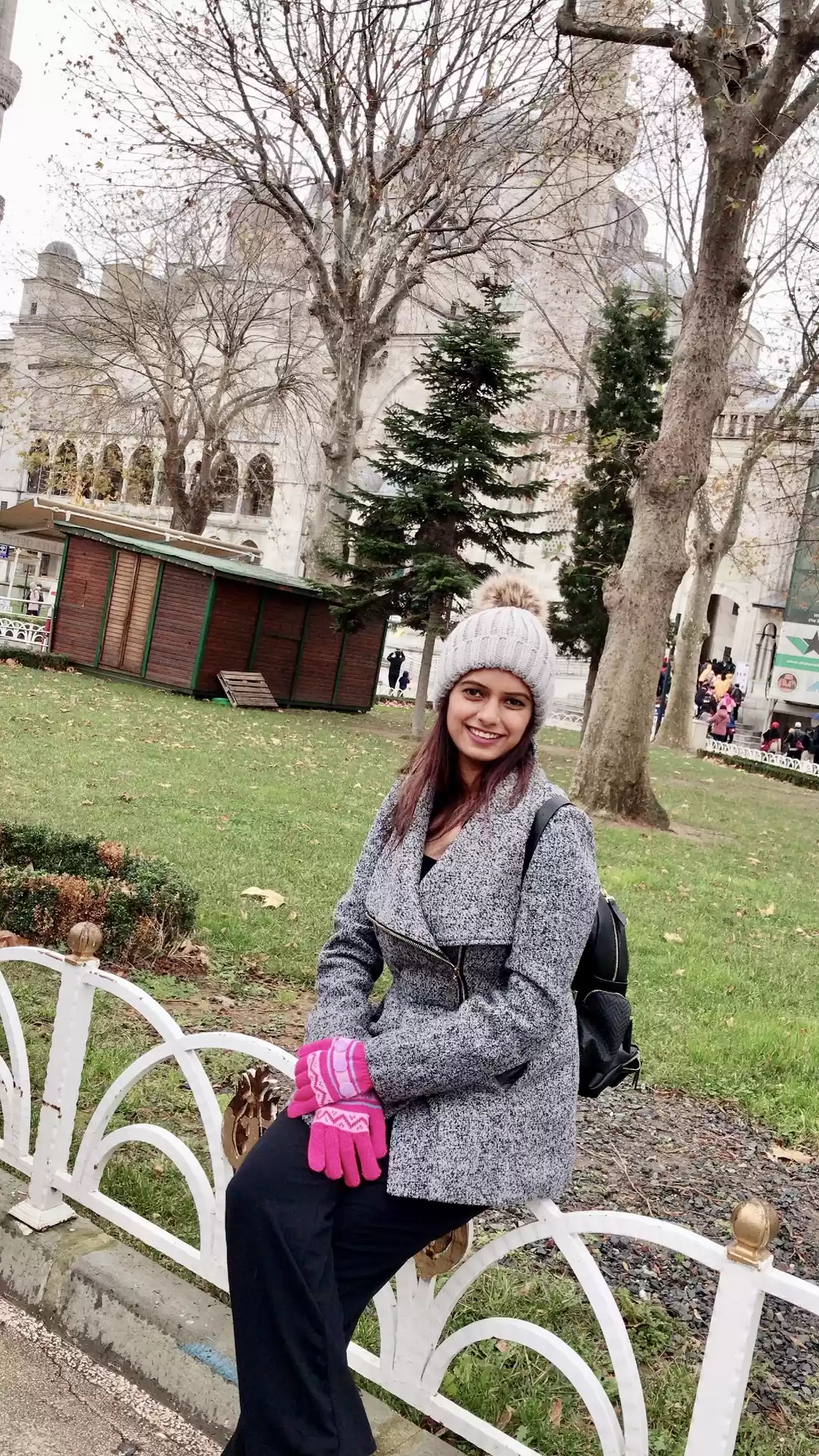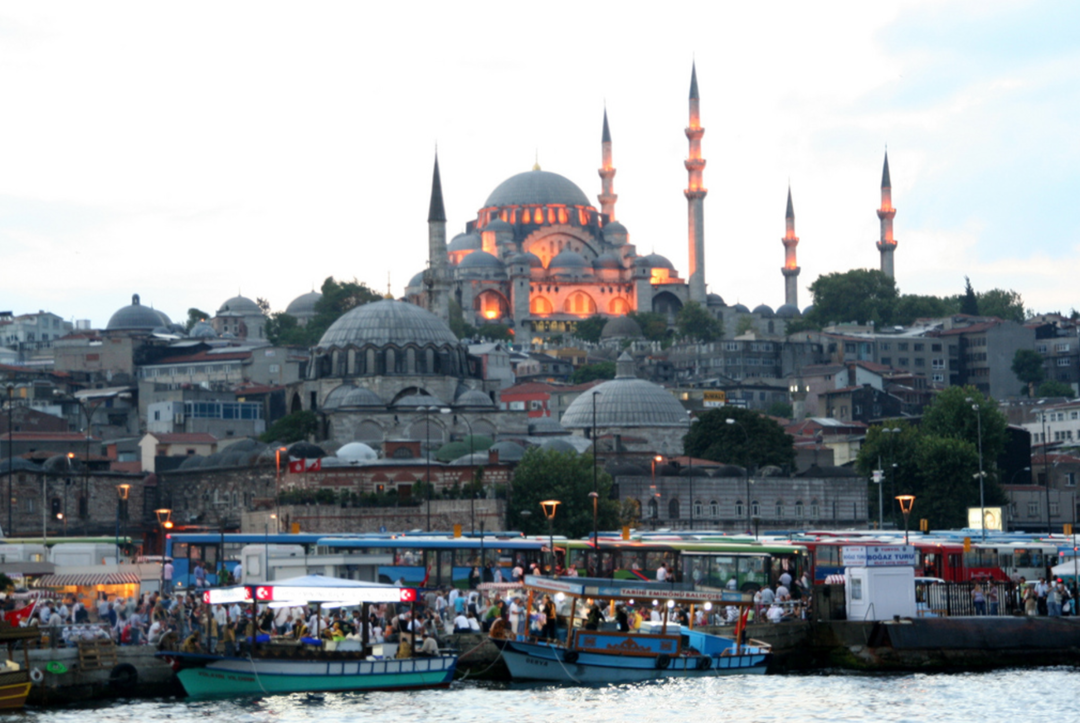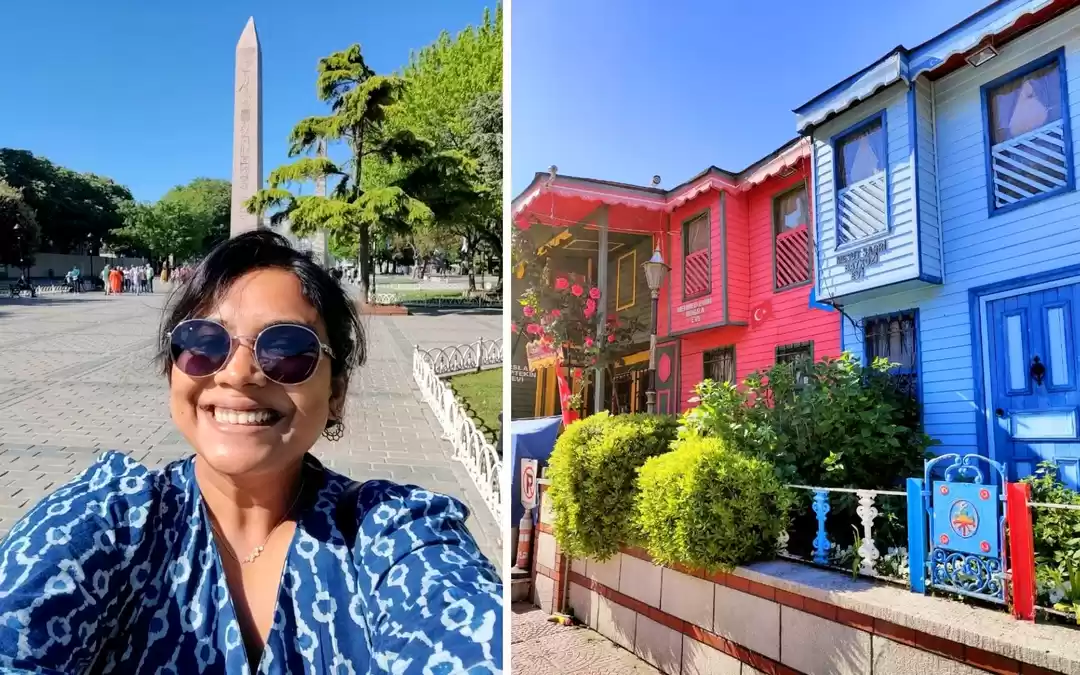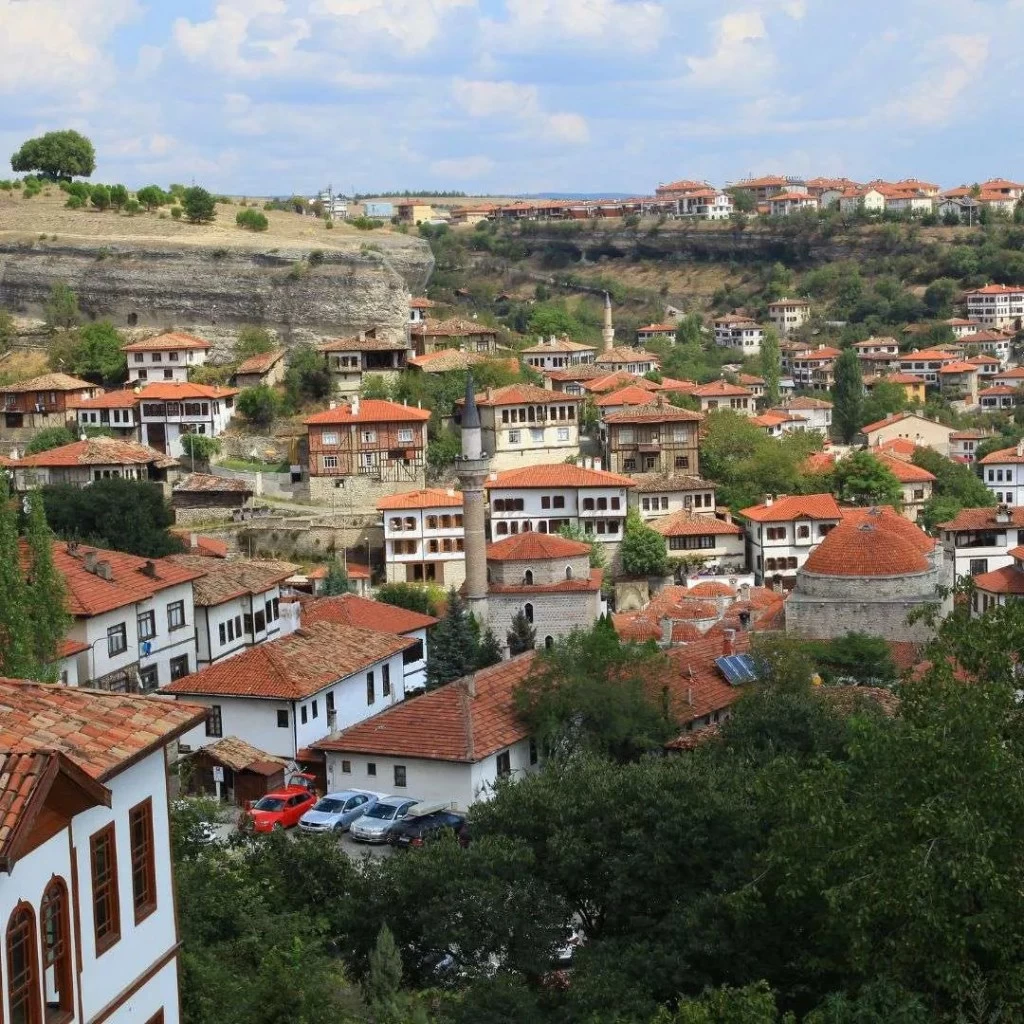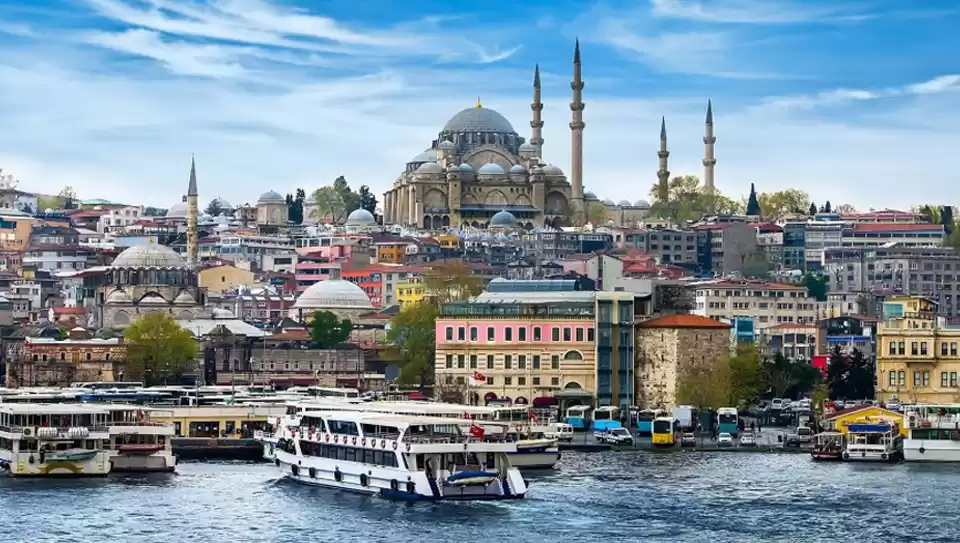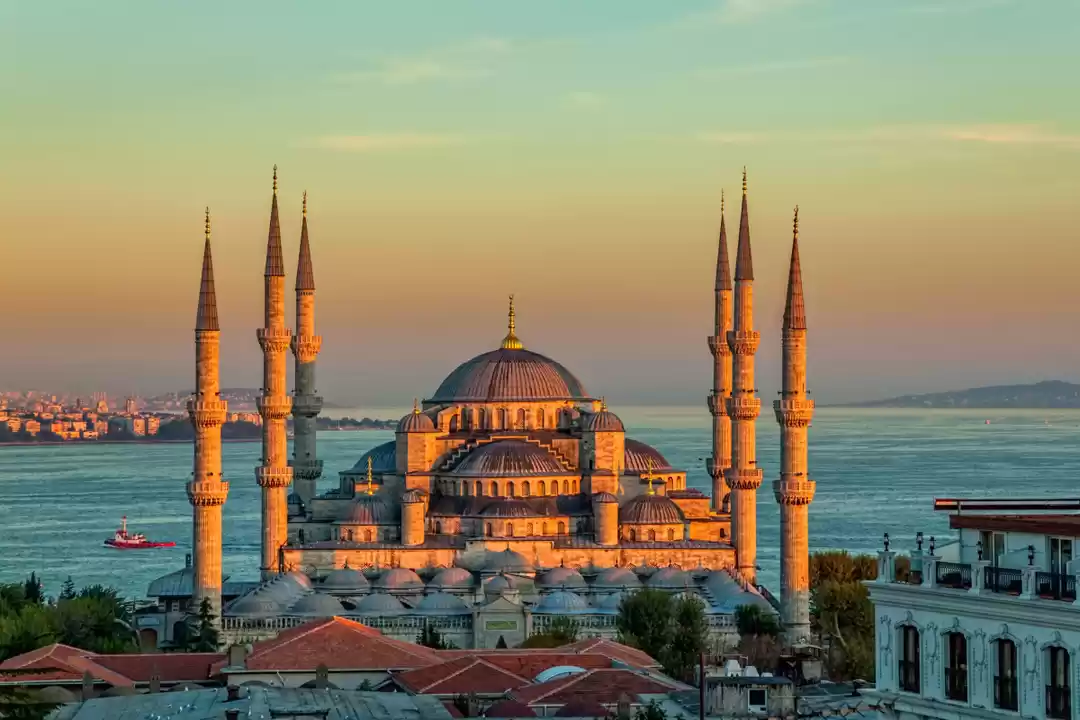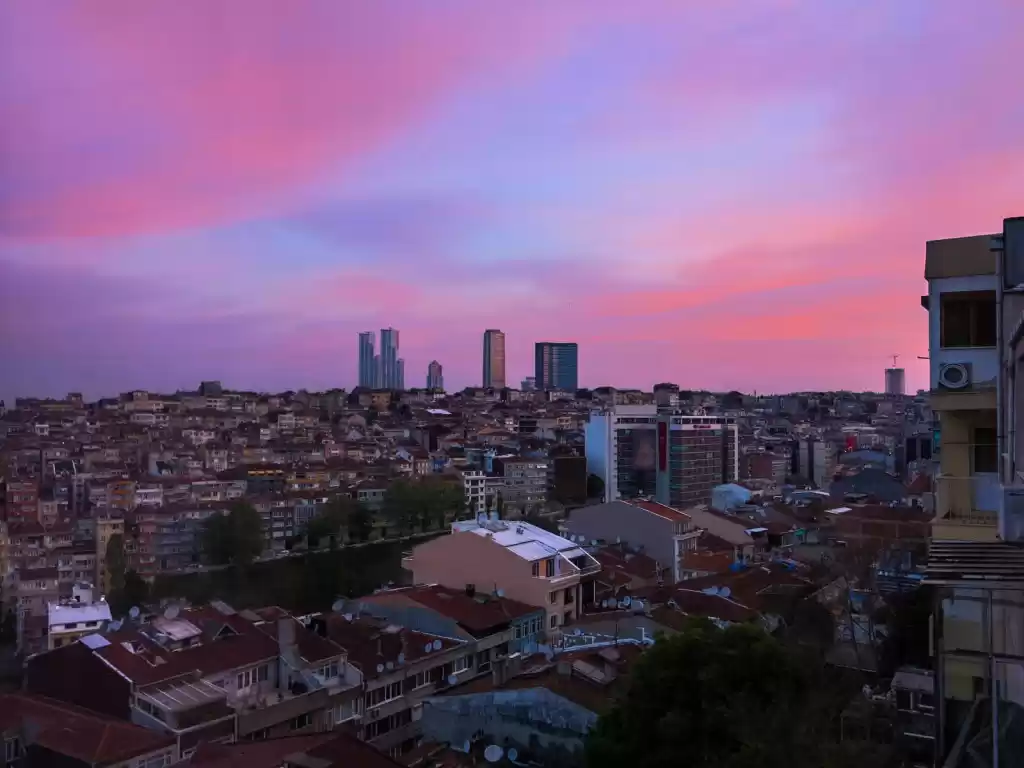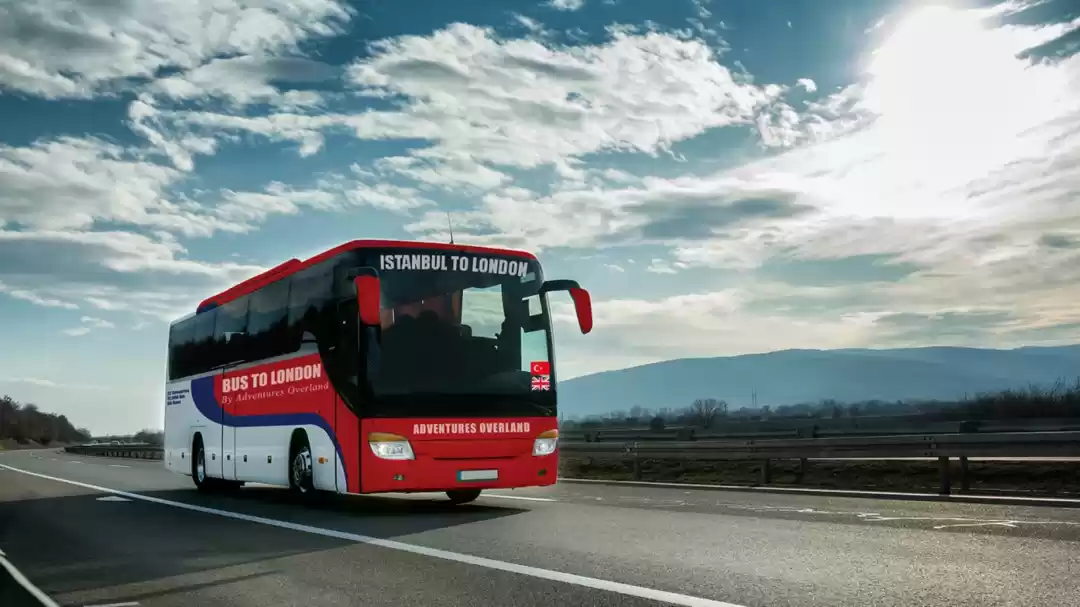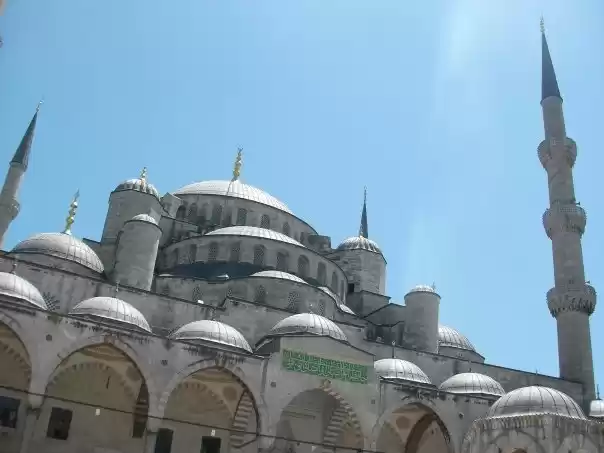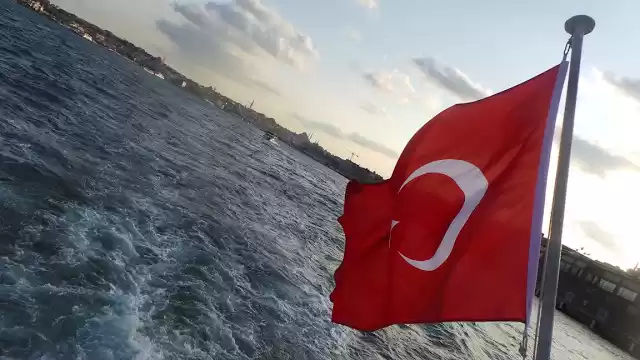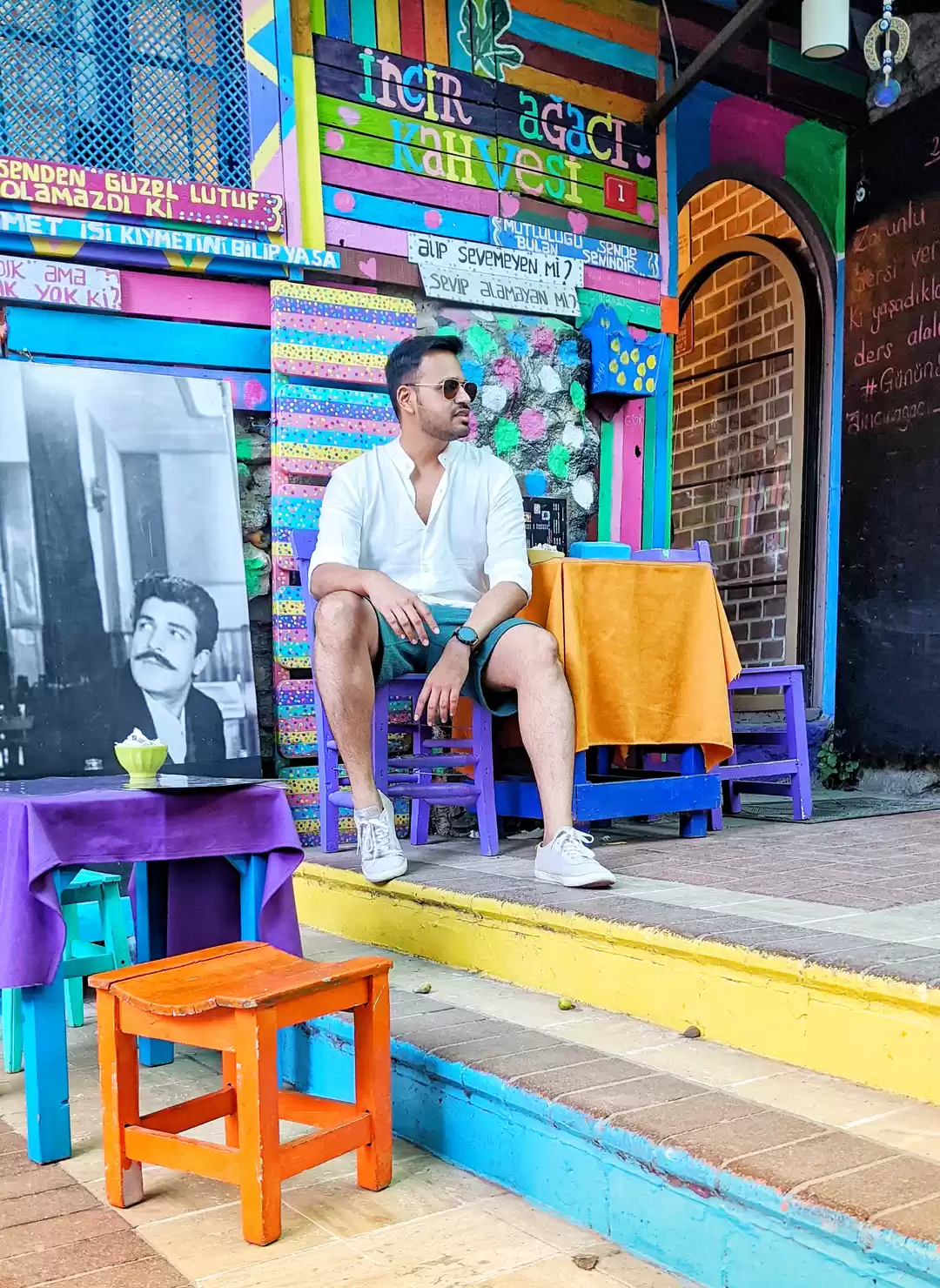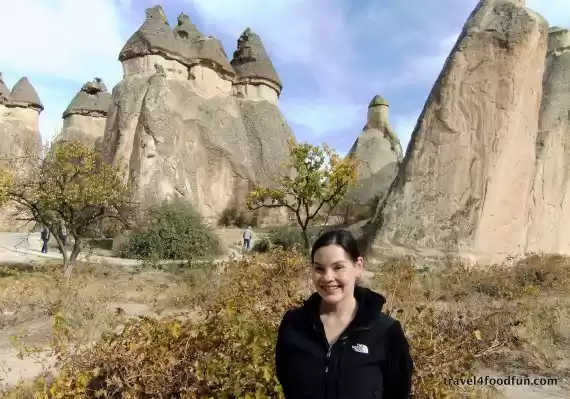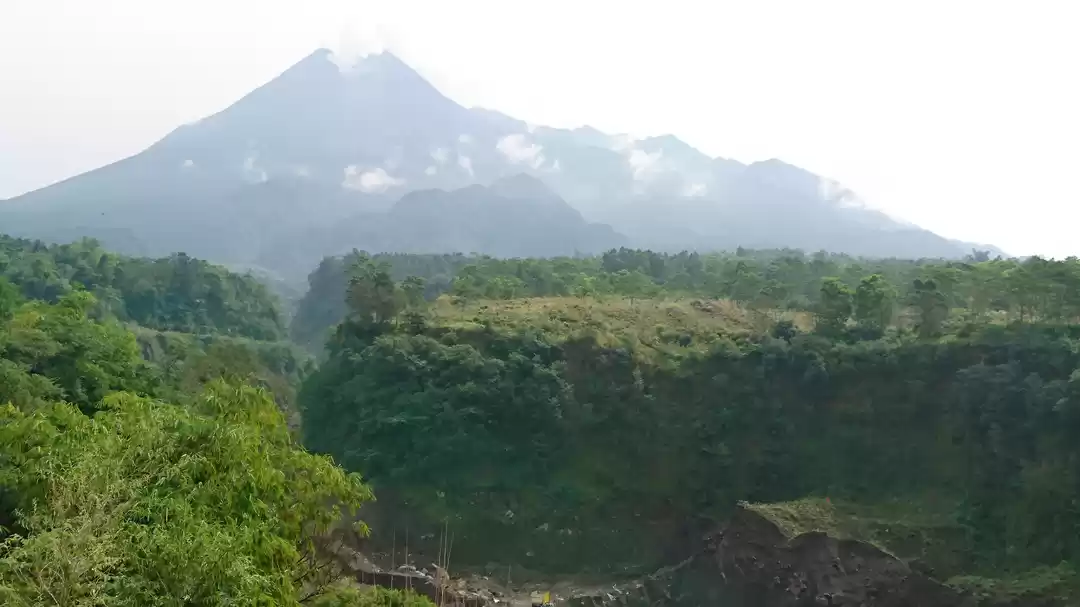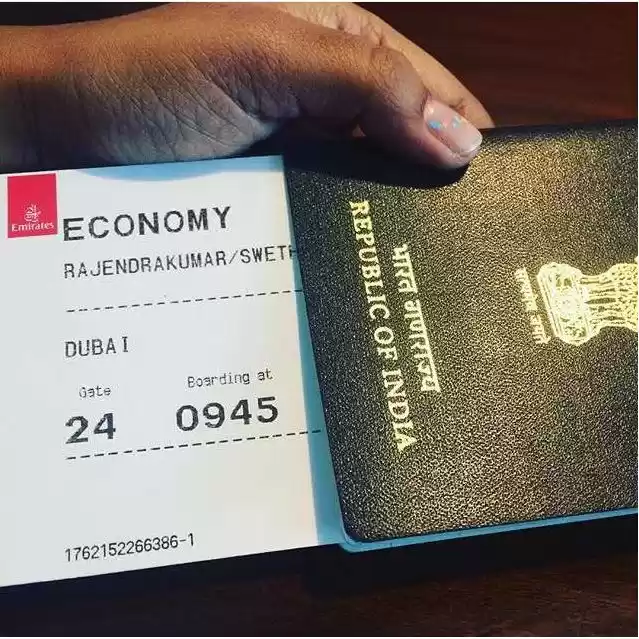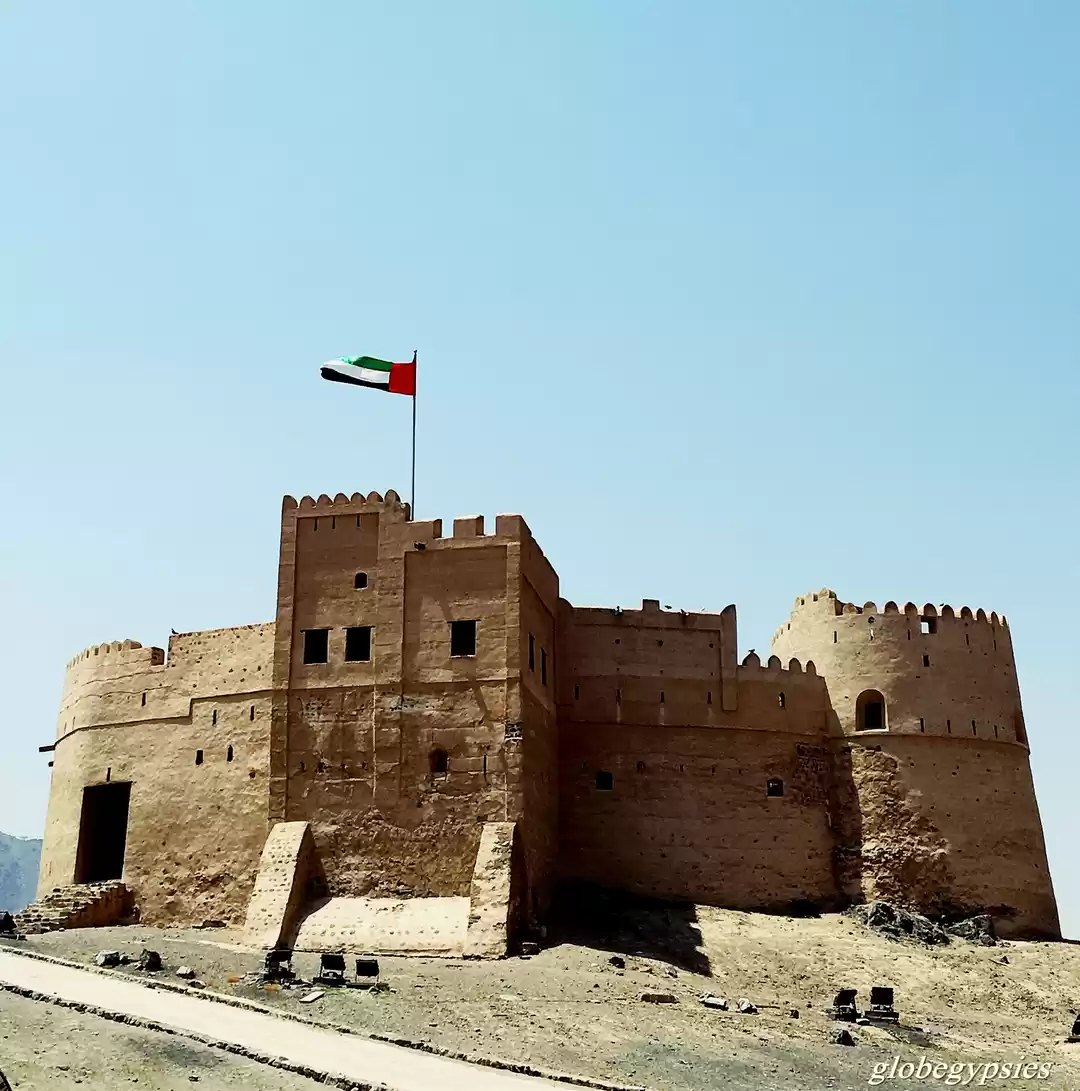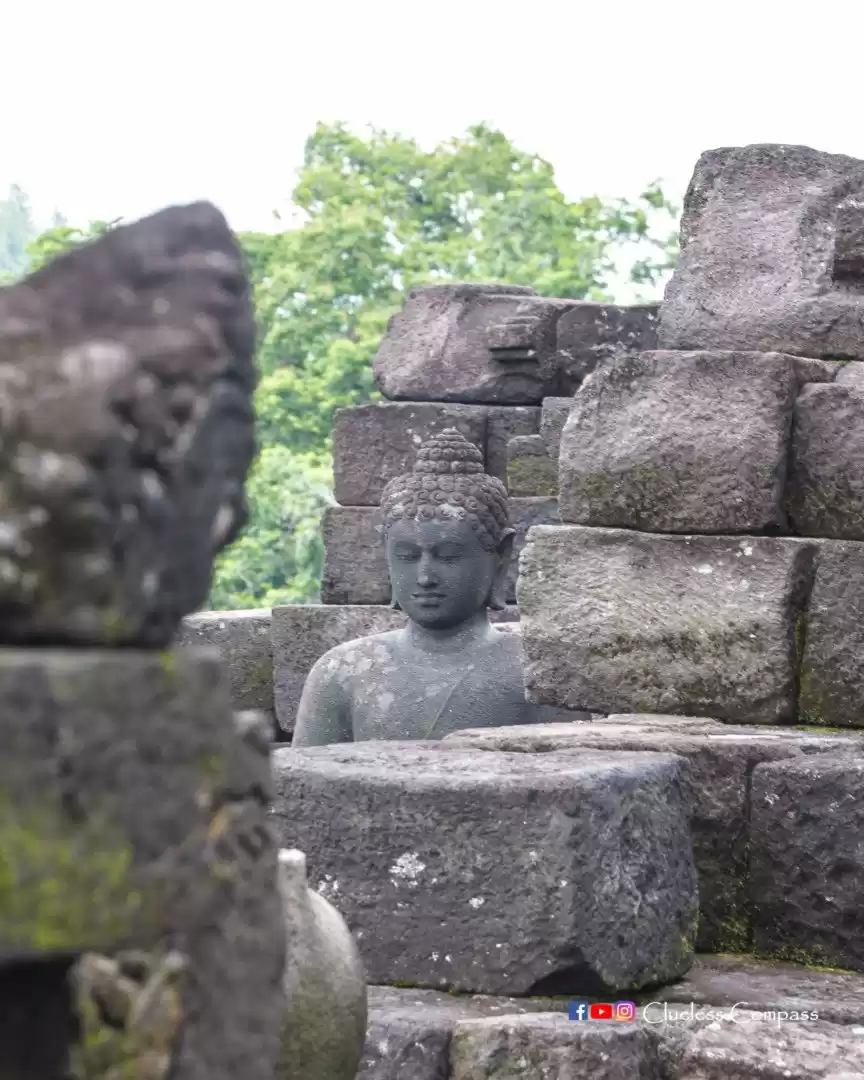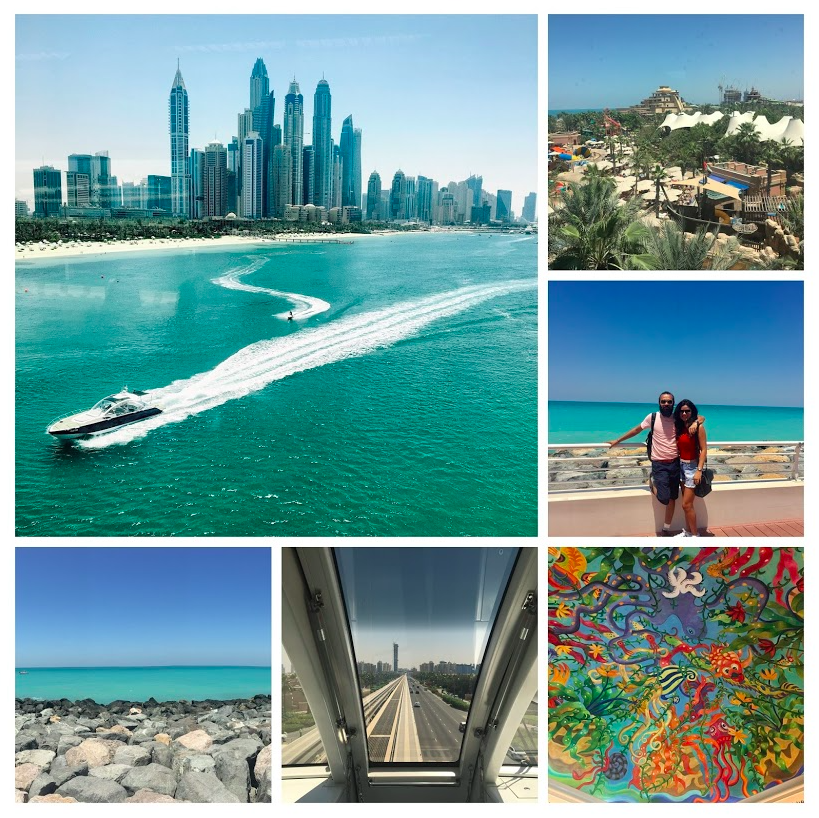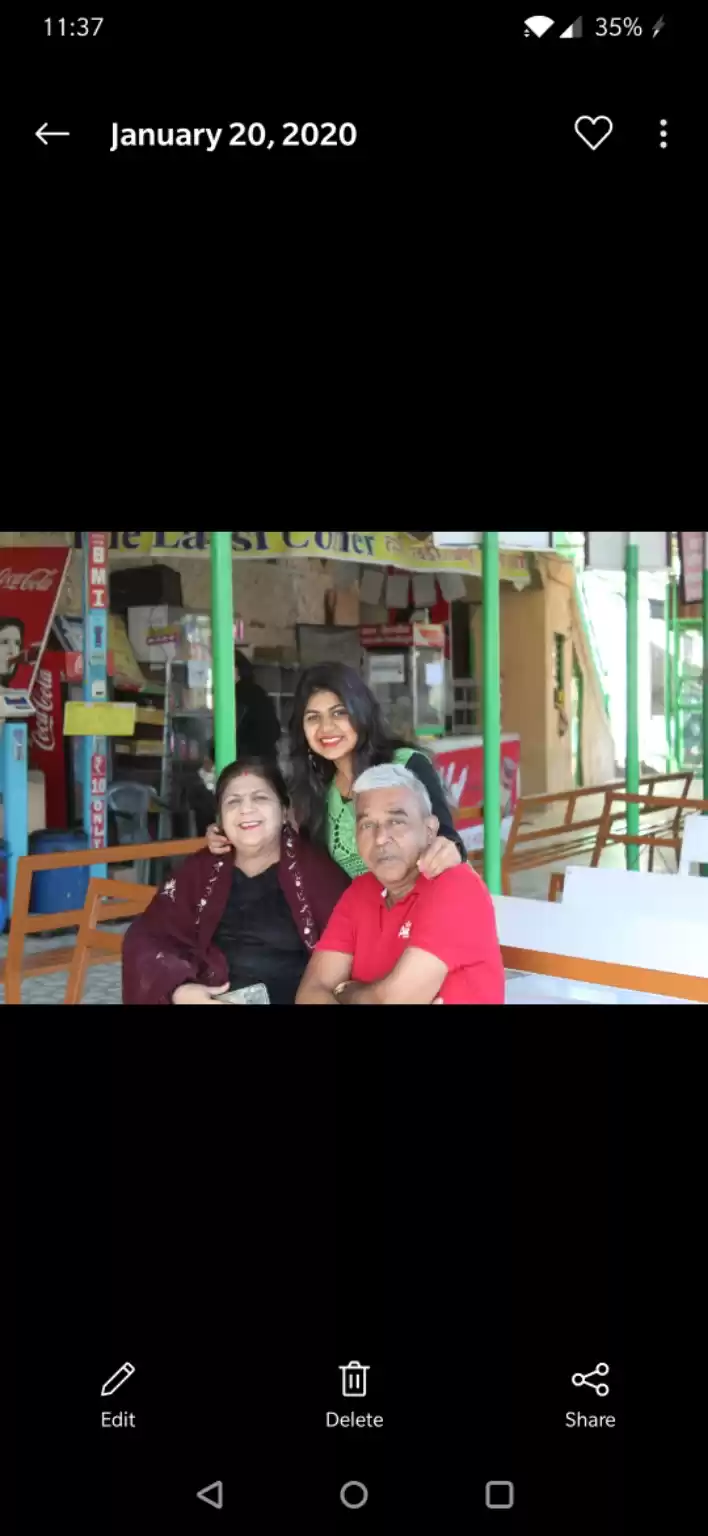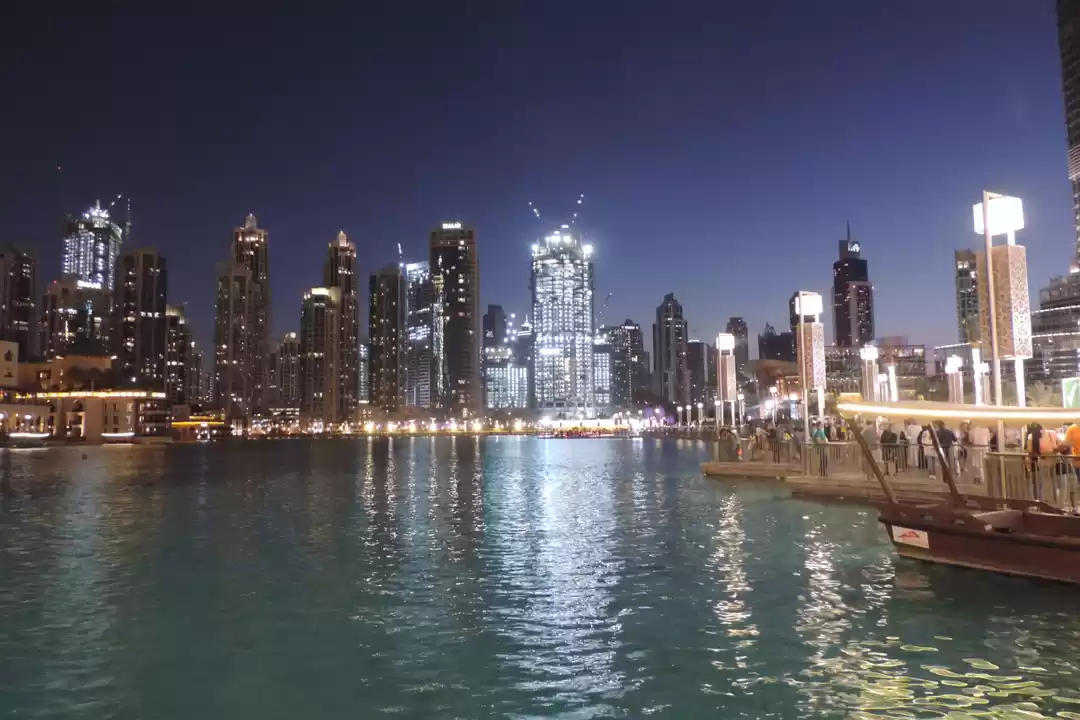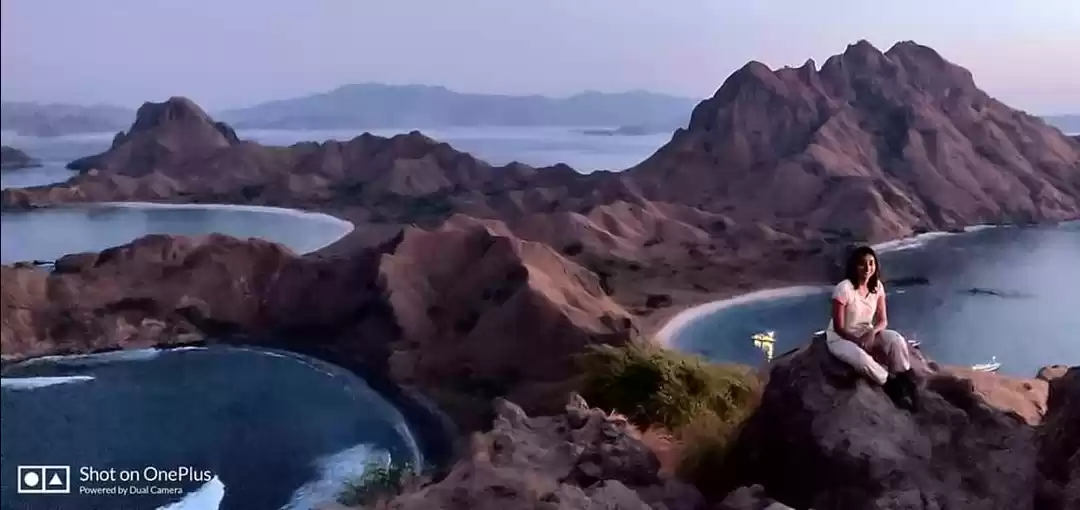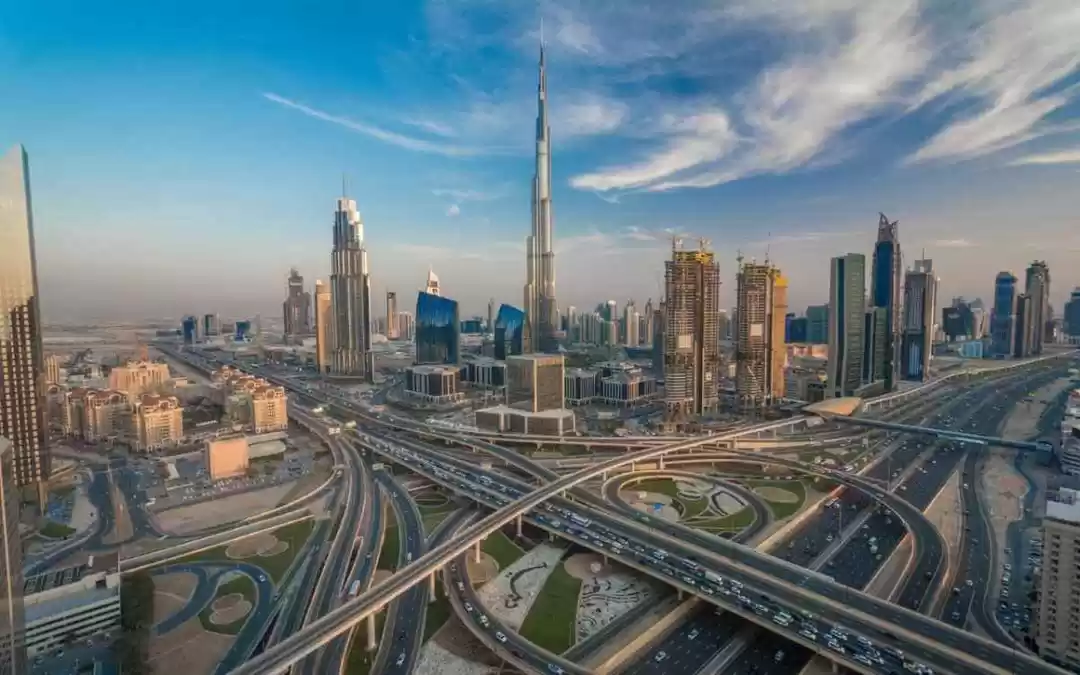
We decided that since we were traveling from Indonesia to Morocco and had to stop in Dubai and Istanbul, why not stay and have a first contact with the cities. We searched for information and what were the most important points of interest. What we did not realize was that we were traveling during Ramadan and in extreme temperatures that reached 45 degrees. The thermal sensation was of being in the very inferno.
After our first day of travel and 24 hours of flights and airports, we arrived in Jakarta where we would get up early to begin the second day of the trip in which we would tour Yogyakarta. We go to bed at 9:30 pm, very tired after the whole trip.
Day 1 - Ramadan in Indonesia
At 3:30 we had the shuttle from the hotel to the airport as the flight to Yogya left at 6 in the morning. In 25 minutes we arrived at the airport, checked our backpacks and had breakfast. At 6:00 in the morning the flight left and in one hour we were in Yogya!
As soon as we left the plane, we went to pick up our backpacks and we already noticed the most relaxed atmosphere in this city. Once with the backpacks we left the airport to carry out our first mission to haul a taxi to get to the hotel.
As soon as we left, there was a taxi stand. The price seemed very expensive for what we had read and we approached the parking. A taxi driver asked us and we got him to take us. We arrived at our hotel in Yogya, and we checked in.
We were talking to the reception girl and the owner, who gave us a lot of information about transportation in Prambanan. Once we had all the information, we left the backpacks in the room and went to begin our tour of Yogyakarta in one day.
We went to Prawirotaman Street where we made our first change of currency, since the previous day we had changed just at the airport to go to the hotel. The Prawirotaman Street was narrow, flirtatious, full of restaurants and great atmosphere but a quiet street.
We took a taxi to get closer to the center of Yogya. The first stop of the day is the Sultan's Palace. Although after a while we got tired and went to the Kraton, a walled enclosure. Inside this enclosure we find markets, shops, crafts, batik, schools, and mosques. The most private group of buildings is where the sultan resides. It is one of the most perfect examples of Javanese architecture, composed of luxurious halls and courtyards.
The guide told us things about the current sultan, his beautiful wife who was a model and his daughters. We entered through several courtyards and lobbies where we were see the history of the city and where we could enter the rooms that were different museums, linked to Dutch imperialism. It is worth mentioning the beautiful Golden Pavilion.
The next point in our tour of Yogyakarta was Taman Sari. We went walking and discovering new corners of Yogya. We liked this city very much with its atmosphere, and lots of color! Taman Sari is located southwest of the Kraton and once served as a recreational and leisure area for the sultan, where parties were held in the gardens and pools.
As soon as we entered, we were taken by a local band who guided us. The truth was that it was great because he explained many things about the complex, which was ruined by wars and earthquakes. This complex composed of parks, canals, ponds, gardens and pools was used by the Sultan for all his leisure activities.
In addition, the guide took us through the passages that connected to the palace and also served as a hiding place. We could see the technique of batik, a way of dyeing clothes with layers of wax that get an effect of broken lines.
We were able to enter a store where we saw many fabrics and paintings made with the batik technique. We arrived at the pool area where the guide explained that the sultan went to the balcony to greet all the members of the parties.
Then we went to the pool area where the women were in the water and the Sultan from the first floor chose the ones that would go with him to the annexed swimming pool and to his rooms. The site was in ruins but the area of the pools is very beautiful.
The surroundings of the Kraton and Taman Sari neighborhood are full of very charming streets with houses of pastel colors and urban art. It is worth taking a walk around this neighborhood. It was very hot and we were tired after having only slept two hours.
The guide kept telling us things. So we decided to pay the good man and continue on our way. The truth is that it came great because he told us many things. After touring the Kraton, Taman Sari and surroundings we went to the Bird Market but we were so tired that we did not get around and took a becak to Malioboro.
The next point was Malioboro Street, the main commercial artery of Yogya and where we can see all the strong points of this city concentrated. There is so much fuss and people that it can be overwhelming. It is very alive and full of color. We went around the shops and the food stalls. On Malioboro Street everyone eats down the street.
Our idea was to eat there but in the end we decided to return to the hotel area to rest before our visit to Prambanan. We returned in becak to Prawirotaman Street and ate. Although we would have liked to eat at Malioboro, we did well to do it near the hotel. We were able to sleep 45 minutes before we went to Prambanan. So after lunch we went to the hotel and we went to bed for 45 min.
When the alarm clock rang we had to get up! I was visiting the Prambanan temple at sunset! We discarded the idea of traveling by bus because we were at the end of Ramadan. There were a lot of people and traffic and the price of the hotel tour was very good.
At 1:30 pm we were ready for the van to pick us up. And after picking up several couples at other hotels, we set off for Prambanan. Once we left the van in the parking lot, the guide managed the entrances and we entered the complex eager to discover this impressive temple.
We took some brochures with a map at the entrance and we started walking towards the main temple. In the distance we could already see the enormous and incredible temple. We were in the end time of Ramazan and it was full of people. There was no one else in the complex.
At the end of Ramadan, they have a week's vacation and families take advantage to travel in the country and it was full of Indonesian people. After taking some pictures with the impressive temple of Prambanan behind, we went to visit it and climb several of its towers. The temple is really amazing! We really liked it. We climbed the towers and saw some areas that were destroyed by the earthquake.
Also, we saw the beautiful sunset in this amazing place! The place was full of people. I suppose if you go in another time that does not coincide with the end of Ramadan you will not find it so full. We still enjoyed our experience in Prambanan at sunset.
We see the rest of the temples belonging to the Prambanan complex, although they were quite deteriorated. Once we saw everything, we went to the parking lot and our driver took us back to the hotel where we went to Prawirotaman Street to have dinner. First we had some beer with music playing and a good atmosphere while it was time to have dinner. We chose the one highly recommended on TripAdvisor and it was a real success. We have some very good local food at an unbeatable price.
The entire table is within our reach with typical dishes for this occasion. There are fried mushrooms, comforting soto ayam soup (with chicken and rice noodles), murtabak (salty stuffed pancake), lumpia (steamed spring rolls), ketupat (some sticky rice triangles that wrap them in banana leaf) and the inevitable Kolak. We do not say that it is number one for its flavor, but because this thick dessert cannot be missing in any Ramadan table.
After we had some fantastic ice cream while walking along the lively Prawirotaman Street we return and go to sleep early. The day had been hard as we had not slept more than two hours the night before and what was even worse. We had to get up very early because the van picked us up at 6:45 in the morning to go to the airport.
Day 2 - Ramadan in United Arab Emirates
We said goodbye quickly from the hotel and took a taxi to the airport. We were excited about staying in Indonesia till the end of Ramadan, which is celebrated with the arrival of Eid al-Fitr or, as they call it Hari Raya Puasa or Lebaran. But our bookings ahead were already done so we have to leave for Istanbul via Dubai.
We arrived from a flight from Java very late so we took a taxi and went straight to the hotel to sleep. The first thing we missed is that the receptionist insisted very much on including breakfast, and that if we were sure not to take it. We did not give much importance and we told her no but of course we understood the reason for her insistence later.
Day 3 - Ramadan in Dubai
We got up super early. We only had a whole day to see Dubai, so the first thing we did was to take the subway and go to visit the Burj Khalifa, the tallest building in the world. As it was right next to the Dubai Mall, we took advantage of it to go looking for a cafe for breakfast.
We go along the subway through corridors covered with conveyor belts to go to the entrance of the mall. Already along the way we have the first views of the Burj Khalifa that in truth does not seem so high. We arrived at the mall and surprise!
We find a poster that when I translate says that during the fasting hours in Ramadan, the consumption of food and drinks is prohibited by law. We could not believe it, and how we had not heard about it and most important, how does it work? Can we not eat or drink ourselves as tourists?
We found a shopping center as if it had come out of the movie, with absolutely everything closed and without anyone. It was also because it was like 8:30 in the morning but we could not believe it.
We see another couple of tourists and we ask them. They confirm that it is indeed Ramadan and that it is forbidden to eat and drink in public until sunset. In some restaurants and shops we can buy food and drink but we should not even think about eating it in public. So we went to a little shop and bought some food and drink and went back to the hotel for breakfast.
Now we understand the receptionist's amazement. In some hotels, especially ours that was a International chain they serve food and drink to tourists. Our idea was to visit the marina area in the morning, go to the Burj Al Arab hotel and walk along the beach. So with that idea we took the subway and there we went. But what we did not count on was that although it was about 10 in the morning there was a horrible unbearable heat.
On top of that we could not drink water, so we got to see something of the marina and had to take a taxi and return to the metro station. We were on the verge of fainting and I do not think we were out for more than 20 minutes. So our only option was to wait for the sun to go down and spend time in shopping centers with good air conditioning and that's what we did.
We visited the most famous shopping centers and the largest in the world, the Dubai Mall, which are impressively large with ski slopes inside. There are aquariums and other incredible attractions. We also visit the Burj Khalifa. We did not find it as impressive as many other buildings we have seen in other countries. We decided not to go up as we had seen many blogs that was not worth it since the views were not too good. So we took some photos and ran to the mall.
During lunch time we went to buy food to take. Instead of buying food it seemed that we were dealing with drugs. In all the restaurants the food was covered. They give it to us in a bag inside another bag and they warn us that we cannot eat in public. So again we get back to our hotel to eat.
We rested a bit, got hydrated as much as possible and took courage to visit the oldest and most authentic area of Dubai, Al Bastakiya. We visited that area so different from the richest area we had seen in Dubai and saw some mosques from outside. We walked along the river and decided to take a taxi to see the most luxurious hotel in the world, the Burj Al Arab hotel.
The taxi left us near the hotel and we take some pictures and stroll along the beach for a while. The heat was stifling but we still could stand. We saw that the sun is setting. We have never loved the sun as much as that day, and as soon as it set we drank the water. Without drinking in 45 degrees of temperature was unbearable. Being summer the night also comes very late.
We took a taxi and returned to the Dubai Mall, to see the spectacle of the fountains. It is the largest show of fountains in the world, after the the Bellagio in Las Vegas. They may be bigger but it is not as spectacular and beautiful as it was in Las Vegas.
We walk around and went to see the Souk Madinat Jumeirah. It was already full with everyone eating in the restaurants and a lot of people. So finally we could have dinner sitting and relaxed and we went to the hotel. The next day we had to be at 6 in the morning at the airport.
The conclusions of this trip are several. First we have definitely visited in the worst time one can visit. Ramzan and the heat are not good allies. We cannot say that we do not like it or that we like it. Maybe we'll visit it again on other dates and we will change our opinion but for now it stays in those cities that once visited is enough. Even if Dubai has the tallest building, the most impressive metro, the biggest fountains and huge shopping centers it did not captivate us enough.

Day 4 - Ramadan in Istanbul
Ramadan becomes an interesting part of my trip to Istanbul that takes around 4 hours by flight. It turns out that, unknowingly, we arrived in the Turkish capital on the sacred month that was coming to an end. So our entire visit was spent in that time of special significance. The first thing is, I think, to clarify that, at least as far as Istanbul is concerned, traveling in Ramadan does not pose any special problem for the traveler.
Although most bars refuse to serve alcohol, the thing does not matter to me. Rather it gives a special flavor to the chilled beer that we can find in some recondite corner. During the day, for example, we discovered a small hotel in the Sultanahmet neighborhood whose bar was on the top floor, with a wonderful terrace overlooking the Blue Mosque, Hagia Sophia, the Bosphorus and the Golden Horn.
Not being at street level and being conveniently discreet they had no problems in serving us furtive beers that, yes, they charged us at the price of gold. It was at an amount for which one could dine at most of the restaurants in the city. Despite the price, the spectacular views and the almost clandestine pleasure of alcohol justified the visit.
Interestingly, despite our sin with alcohol on the heights, the closest thing to a mystical experience we had during our trip was also on a terrace. It was on the Galata Tower. It is an old tower, at the top of which opens a terrace that offers wonderful views of the European part of Istanbul and the Golden Horn. There we went up in the afternoon with the intention of having a good time until sunset and night.
At sunset when a magic light embellished the city it was certainly difficult to distinguish between a white and a black thread. A firecracker sounded on the roofs and with it the prayers were fired from the many minarets. In the street we hear the prayer call of the muezzins that from the minarets of the mosques is spread in echoes synchronized by the city announcing the last prayer of the day. The festive illumination of the mosques illuminates the night. From one minaret to another of the Blue Mosque hung strings of lights that form words that can be read from a distance.
There was an incredible mixture of chants that began with the well-known Allahu Akbar and that were varying in different and incomprehensible forms and tones that heard from the height of the tower composed a tapestry of surprising musicality. The moment had an undeniable spirituality. Humbling through the crowd, we took off our shoes to enter with all respect inside the mosque. It is difficult to break through a tide of worshipers who want to enter, while another wants to leave.
In a room absolutely crowded with the faithful, without a single square meter unoccupied, the heat inside becomes suffocating, very difficult to breathe. We assume the ritual with the greatest respect. Around the Blue Mosque, turning its back on Hagia Sophia, thousands of Muslims congregate and scatter in all the nooks and crannies of the gardens and the Sultanahmet Square.
Night continues to fall and Sultanhamet is an agglomeration full of life, a hive where colors and smells are confused. The music that comes from the mosque is mixed with the noise of the clogged cars making their annoying and inopportune speakers sound. You can also hear the musical melodies superimposed on the tents of the restaurants set up for the occasion.
The bulbs of the numerous stalls look like fireflies hidden among the trees of Sultanahmet, tinkling with the effect of a wind. There are shouts, looks, smiles that are lost with the new ones, bodies that are dodged and bodies that collide. The emotional snapshots coincide with the breaking of the obligatory fasting of Ramadan.
The night of Ramadan is a real celebration. There were real fairs in the neighborhoods, with the music, booths and, above all, huge amounts of food. We go to spend some time in the Sultanahmet Square. We walked, tried some new food and bought some sweets and we participated, even if we were mere spectators who did not understand everything that happens. There was the undeniable festive atmosphere. And all at the foot of the Blue Mosque. It was nothing more and nothing less.
We go through some food stalls, they have small tables and chairs where more than drinking, it seems that you play with tea passing it from glass to glass, pouring the infusion with precision. Strategically placed, candy sellers trumpet their merchandise by running over words, vociferating offers, competing in volume and verbal vividness with sellers of popcorn and corn cobs that, at this moment, seem to be more successful.
I stand next to a candy kiosk, enjoying the artisanal elaboration of colored lollipops where a shopkeeper concentrates on his work. He wraps the sugar syrup around a long stick, turning it untiring, giving precise shape to the candy while the children wait for their shift with certain doses of impatience and the illusion reflected in their faces. They choose the colors pointing their finger at their favorite mix .
In another area of the racecourse square, men swirl in their jackets and sweaters around the kebabs vendors and chat animatedly without taking their eyes off the cooks who, frantically, cut vegetables, turn the meat, ask for more bread, or wrap and dispatch food. At each step a new sensation appears. At every few meters is a new smell, a sound, a music, and a visual surprise. In short we have thousands of memories in this intense walk among the festive crowd.
Day 5 - Ramadan in Tangier
Our next destination was in Morocco. For this we took a flight to Tangier. When we arrived in Tangier, a gust of wind pushed me to customs. And that wind would not stop at any time. On the way we could perceive that indeed the area was being heavily built, but we also thought that the buildings under construction were mostly in the outskirts.
In general, Tangier seemed more beautiful and interesting than I expected, but this was just the beginning of my trip to Chauen, a blue city nestled in the mountains of the Rif, after leaving behind what locals call the door of Europe. I was glad to have gone by car and not by bus because the journey from Tangier was somewhat longer than I thought.
It takes about two and a half hours with so many curves that at the end I felt my body getting mad at every turn. But we arrived well. We arrived at night and it was still priceless how much this place was going to give us. We climbed stairs for a long time to the upper part of town, where the Riad was located. Chaouen or Chefchaouen is characterized by its indigo blue color. It is located in the northwest of Morocco, in the foothills of the Rif Mountains, near Tetouan. Here time passes with its own relaxed pace and is a perfect caravanserai for backpackers.
We went to eat at the main square, Outa el Hammam square, where there were many restaurants with terraces. We ate chicken and vegetable tagine, morunos skewers and orange juice. The waiter reminded us that that night he played the first of four games that were going to face Real Madrid and Barca in the league. And I would not be the only one.
Day 6 - Ramadan in Morocco
Today is Eid al-Fitr. In the morning I escaped, while the rest of my companions had breakfast quietly on the terrace of the Riad. Strolling and getting lost in the Medina is a delight. The cats that have been protected from the sun shrieked and walked among the blue streets.
I try to respect others and therefore I try not to drink or of course eat in front of the Moroccans. That means that sometimes, at more than 48 degrees of temperature, I drink the water that I carry in my bag hidden in a bathroom or directly when I understand that nobody is looking at me. Surely no matter how discreet I try to be, someone sees me. So sometimes I get uncomfortable if I see someone watching me while I drink.
The daily life in Ramadan is modified. The atmosphere on the street is as if the world were moving in slow motion. People walk slowly. Children play on the street. Some open the souvenir shops for tourists, despite Ramadan. It is hard to resist to stop photographing. The restaurants at noon are almost all closed, and the bars too. Only some that are clearly focused on tourists remain open.
Finally we reach what they call the Ras el-Maa waterfalls. There were people who, like me, did nothing. It seemed that they also enjoyed it. And so I was the rest of the day, walking and watching until the sun went down and suddenly the temperature went down. So we walked to the hostel.
The quiet and peaceful atmosphere was interrupted only by the songs of the muezzin. The sun sets on the horizon. The call to prayer is heard from the minarets of the mosques scattered throughout the city. The songs overlap producing a rhythmic stereophony that invades everything. From the terrace of the Riad, it is a fascinating experience. We enjoy the explosion of life that arises out of nowhere once the sun has set.
The last rays of the setting sun caress the mountains and the red and ocher tones explode in soft colors producing bliss in the environment. That evening the air flew clean while a cowherd boy struggled to gather his flock. As always, we had camped in an excellent meadow near a stream of crystal clear waters. I was, like many other times, directing one of our tours through the mountains of Morocco.
But, this time it was different, we were in full month of Ramadan. We savored the snack after a day facing ports and atlantean winds. As the sun began to leave, the faces of manifest joy began to draw the burned faces. The people rush to break their fast. The streets are taken by the citizens, opening the small cafes and restaurants that immediately become crowded.
Next to each cafe a stove is installed to offer grilled meat, Kebab, and kefta spreading through the atmosphere that unmistakable aroma. In the busiest areas, multiple street vendors offer dates or candy, a typical sweet of Ramadan, consisting of its simplest version in a fried dough bathed in honey that we find in different versions. Breaking the fast through the obligatory iftar is part of the doctrine and materializes in a copious family dinner.
Together we began to ingest the precious foods and drinks. We have tea, dates, Ramadan sweets with honey, bread with olive oil and the traditional harira, a soup that gives strength to the body. It was the moment of laughter, of the jokes of the day, and the occasional wish of Ramadan Mubarak. The night came and in our kitchen was cooked delicious meats, couscous with chicken, meat and plum tagine, stewed vegetables.
We dined a little later and then, by the light of the bonfire, we see the starry sky. Someone was going to play the darbuka and the songs of travelers and Berbers were the only sounds in the dark Atlantean night, before a court of children and young people who came to the camp from nearby villages. I was soon marching to the sack and fell exhausted with the sound of the drum and the croaking of some nearby frog.
In short, the ramadan radically transforms the Moroccan night, endowing it with an activity and an unthinkable life for those who have known the vital rhythm of the country in another situation. So traveling in Ramadan allows us to live moments and experience sensations that would have seemed out of context at any other time of the year. Night falls in Chefchaouen and the blue of this city darkens. Although the indigo color does not invade everything anymore, the return to activity and the chants from the minarets, continue to make us enjoy this special and unique place.

